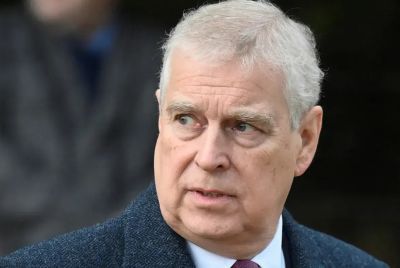Nuclear Power Showdown: Why The UK Chose Rolls-Royce for Next-Gen Nuclear, US Expresses Disappointment
Starmer backs British SMRs at Wylfa, sparking US backlash and global tension.

In a landmark move for UK energy policy, Prime Minister Keir Starmer announced on 13 November 2025 that Rolls-Royce SMR will spearhead the deployment of Britain's first small modular reactors (SMRs) at the Wylfa nuclear site in Anglesey, Wales. The initiative is backed by a £2.5 billion ($3.84 billion) government infusion into clean energy investment.
This British nuclear technology triumph, poised to generate thousands of nuclear power jobs and fortify national energy security, has provoked fierce US disappointment, with Washington decrying the exclusion of American alternatives in the escalating global race for SMR dominance.
As Starmer's energy policy pivots toward SMR technology to meet net-zero targets, the decision spotlights global tensions over nuclear revival, blending domestic pride with diplomatic friction in the quest for sustainable power.
The Strategic Selection of Rolls-Royce for SMR Leadership
Great British Nuclear selected Rolls-Royce SMR in June 2025 after a rigorous two-year process, lauding the Derby-based firm's fusion of submarine nuclear prowess with modular innovation for swifter, cost-effective deployment. Each factory-built unit will generate 470 megawatts—enough to power one million households for 60 years—offering a faster, more cost-effective alternative to mega-projects like Hinkley Point C.
By favouring homegrown expertise, the UK safeguards its supply chain, averts foreign dependencies, and accelerates the clean energy investment pipeline. Bloomberg analysts note SMRs as a cheaper and easier way to decarbonise grids. Wylfa, dormant since 2015 after four decades of service from 1971, emerges as the ideal locale, its coastal infrastructure primed for up to eight reactors in a fleet-style configuration.
Tom Greatrex, Nuclear Industry Association chief, stated, 'These efforts... we will need reactors large and small,' envisioning a diverse portfolio beyond Sizewell C. This choice catalyses British nuclear technology resurgence, embedding SMRs in the UK's 24-gigawatt nuclear target by 2050.
US Backlash and Diplomatic Ripples in Nuclear Ambitions
US Ambassador Warren Stephens lambasted the choice, stating, 'We are extremely disappointed by this decision...' The rebuke follows the Trump administration's October 2025 £61 billion ($80 billion) accord with Westinghouse, earmarking the Pennsylvania giant for Wylfa's revival and fuelling expectations of transatlantic synergy.
US ‘disappointed’ that Rolls-Royce will build UK’s first small modular reactors | Nuclear power | The Guardian https://t.co/1ntNPHvoa9
— JanetM. (Monarchist) (@Cilvrnum) November 13, 2025
The Telegraph frames it as a direct rebuke to Starmer, with US officials decrying the 'snub' of proven AP300 designs amid stalled 2019 talks with Hitachi. A UK government insider countered, 'This is the right choice for Britain. This is our flagship SMR programme, producing homegrown clean power with a British company,' prioritising sovereignty over speed.
iNews highlights escalating US-UK nuclear frictions, potentially complicating NATO energy pacts.
Economic Boost and Social Legacy from Wylfa's SMR Revival
Wylfa's transformation heralds major economic uplift, with the project expected to support up to 3,000 good jobs in the local community at peak construction and billions of pounds in infrastructure investment out to the mid-2030s, per government projections. Starmer proclaimed, 'Britain was once a world leader in nuclear power, but years of neglect... this government isn't just reversing decline, it's delivering thousands of future-proofed jobs, driving billions in investment.'
The £2.5 billion ($3.84 billion) government commitment aims to de-risk early phases like design and factory construction, attracting additional private capital to realise the full build, powering the equivalent of around three million homes with stable, low-carbon output to help reduce energy bills over time. Unite's Sharon Graham cautioned, 'Failure to support a gigawatt nuclear power station at Wylfa would be a huge missed opportunity in securing the UK's energy security,' referencing the 2019 funding collapse.
Environmentally, SMRs produce less waste and complement renewables in Starmer's energy blueprint. This endeavour not only rejuvenates Anglesey but positions the UK as a global leader in clean energy innovation.
© Copyright IBTimes 2025. All rights reserved.





















